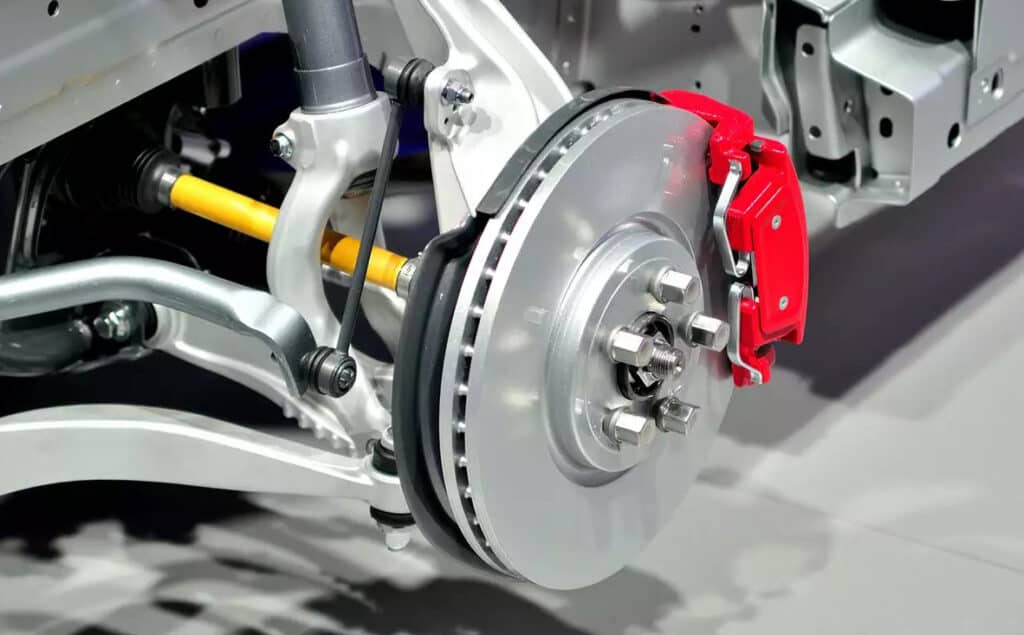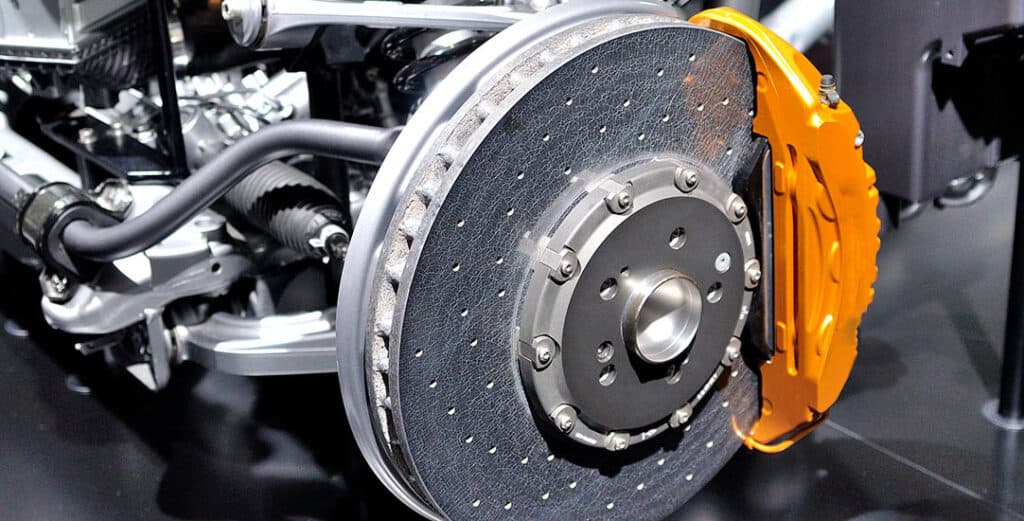The Evolution of Brake Systems and Emerging Technologies
Braking systems have come a long way from their humble beginnings. Advances in materials, electronics, and engineering have significantly improved braking performance, safety, and efficiency. As technology continues to evolve, we can expect further innovation in brake systems, transforming the way we drive and maintain our vehicles. This article explores some of the most promising developments in brake system technology, and what we can expect in the coming years.
The Impact of Electric Vehicles on Brake System Development
The growing popularity of electric vehicles (EVs) has led to significant advancements in brake system technology. Regenerative braking, for example, allows EVs to recapture energy typically lost during braking and feed it back into the battery, improving vehicle efficiency and reducing wear on friction brakes. As EV adoption increases, we can expect further developments in brake systems designed to optimize energy efficiency and cater to the unique characteristics of electric powertrains.

Advanced Driver Assistance Systems (ADAS) and Autonomous Braking
Advanced driver assistance systems (ADAS) are becoming increasingly common in modern vehicles, offering features like adaptive cruise control, lane-keeping assistance, and autonomous emergency braking. These systems rely on sensors, cameras, and advanced algorithms to detect potential hazards and automatically apply the brakes when necessary, reducing the likelihood of accidents. As ADAS technology evolves and autonomous vehicles become more prevalent, brake systems will need to adapt and integrate seamlessly with these advanced systems.
Next-Generation Brake Materials and Components
Material advancements are driving the development of more efficient, durable, and lightweight brake components. Carbon-ceramic brake rotors, for example, provide superior heat dissipation and wear resistance compared to traditional cast iron rotors. The development of advanced brake pad materials, such as low-copper and copper-free formulations, is also helping to reduce environmental impact and improve performance. We can expect further breakthroughs in materials science to shape the future of brake components.
Electromechanical Brake Calipers: A Potential Future in Brake System Design
Electromechanical brake calipers, which replace traditional hydraulic systems with electronically controlled actuators, offer a range of potential benefits. These systems can provide faster and more precise brake application, reduced weight, and simplified maintenance. Additionally, they can be easily integrated with other vehicle systems, such as ADAS and regenerative braking. As vehicle electrification continues to gain momentum, electromechanical brake calipers could become a more common feature in future brake system designs.
Smart Brake Systems: Predictive Braking and Real-Time Adjustment
Smart brake systems leverage advanced sensors, data analytics, and real-time processing to optimize brake performance for changing road conditions, vehicle load, and driver behavior. Predictive braking systems, for example, use forward-facing cameras and radar to anticipate potential hazards and adjust brake response accordingly. Other smart systems can monitor and adapt to changes in brake pad wear or rotor temperature, ensuring consistent performance and reduced component wear. These intelligent braking systems are likely to become more prevalent as vehicles become increasingly connected and data-driven.
The Integration of Brake Systems with Vehicle Dynamics Control
Modern vehicles are moving toward more holistic vehicle dynamics control systems that integrate braking, steering, and suspension systems to optimize handling, stability, and performance. As brake systems become more advanced, they will play an increasingly important role in these integrated systems. This integration will not only improve overall vehicle performance but also enhance safety by providing more consistent and predictable braking behavior across a variety of driving conditions.
The Role of Big Data and Machine Learning in Brake System Optimization
Big data and machine learning technologies are finding their way into various aspects of automotive engineering, and brake systems are no exception. By analyzing vast amounts of data collected from sensors, manufacturers can develop more sophisticated algorithms and control strategies for brake systems, improving performance, safety, and efficiency. These technologies will also play a crucial role in the ongoing development of autonomous vehicles, as they will enable more advanced decision-making and control over braking in complex driving scenarios. Furthermore, machine learning can help identify patterns in brake system performance and wear, facilitating predictive maintenance and reducing the likelihood of unexpected failures.
Environmental Considerations: The Push for Sustainable Brake Technologies
As environmental concerns become more pressing, the automotive industry is increasingly focused on developing sustainable technologies. In the context of brake systems, this means exploring materials and designs that minimize environmental impact, such as reducing particulate emissions from brake pad wear and optimizing regenerative braking systems to maximize energy efficiency. The push for sustainable brake technologies will likely continue to drive innovation and lead to the development of more eco-friendly brake system components.

The Future of Brake System Maintenance: Smart Diagnostics and Predictive Maintenance
Advancements in brake system technology will also impact the way we maintain and service our vehicles. Smart diagnostics can help identify potential issues before they become critical, allowing for more proactive and targeted maintenance. Predictive maintenance algorithms, which leverage data from sensors and vehicle usage patterns, can help schedule service intervals based on actual component wear rather than fixed schedules. This approach can reduce the risk of unexpected failures and improve the overall lifespan of brake system components.
Conclusion: Embracing the Technological Advancements in Brake Systems
The future of brake system technology promises exciting advancements that will improve vehicle performance, safety, and sustainability. From the growing impact of electric vehicles and ADAS to the development of advanced materials and smart braking systems, these innovations will transform the way we drive and maintain our vehicles. By staying informed about and embracing these emerging technologies, we can ensure that we are prepared for the next generation of braking systems and the broader evolution of automotive technology.
